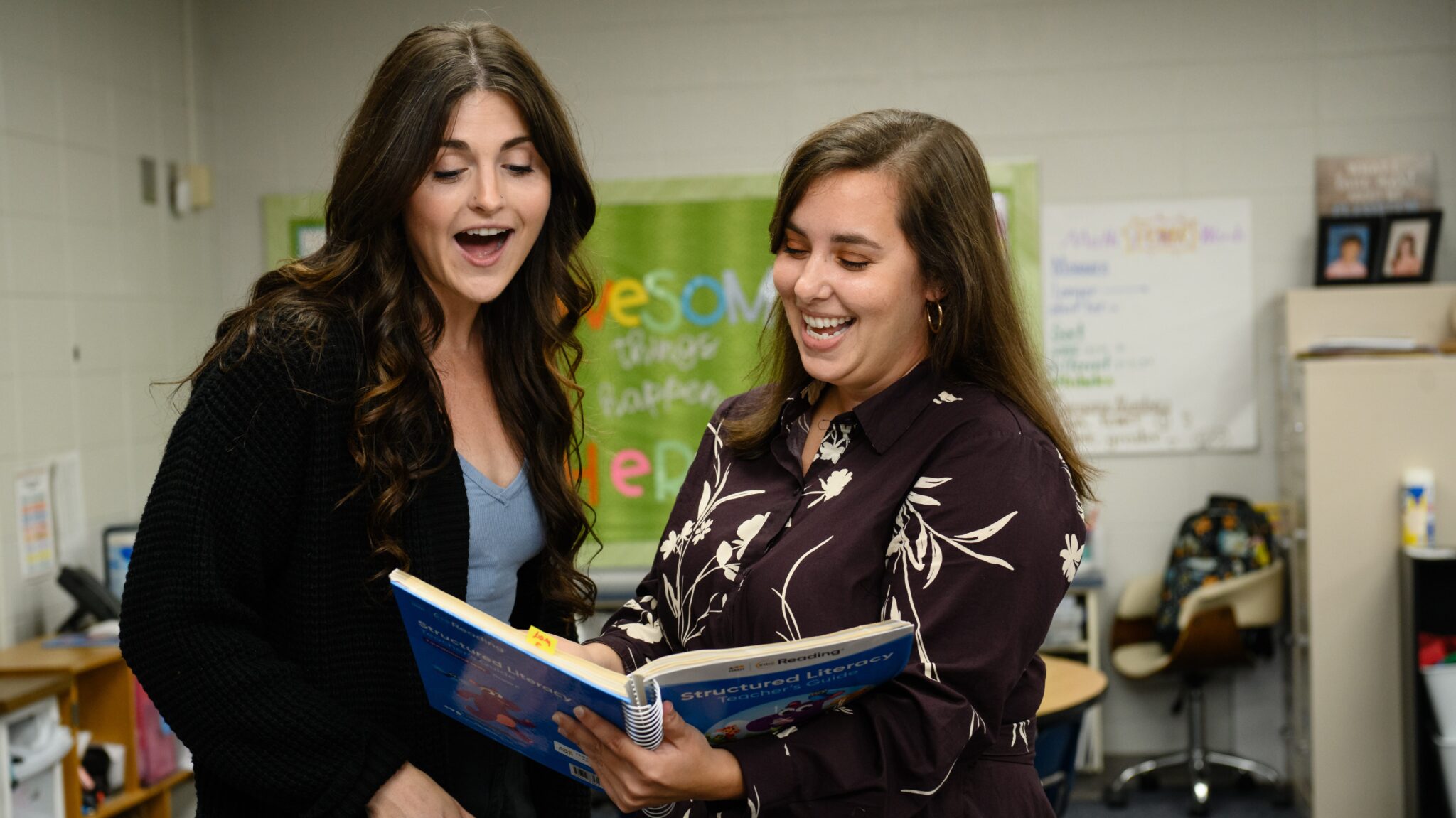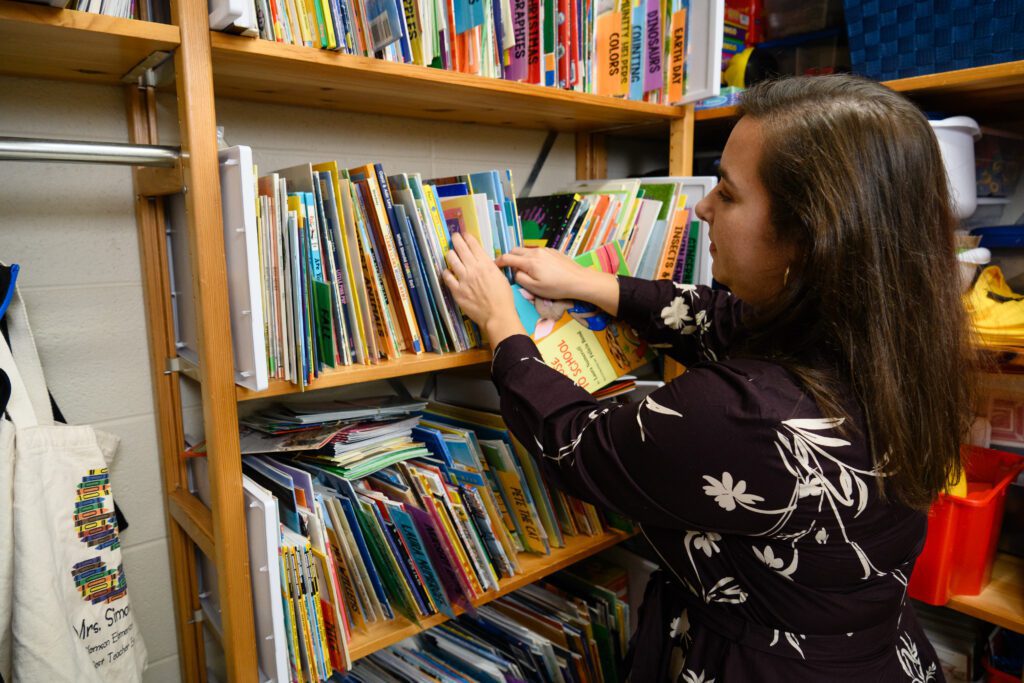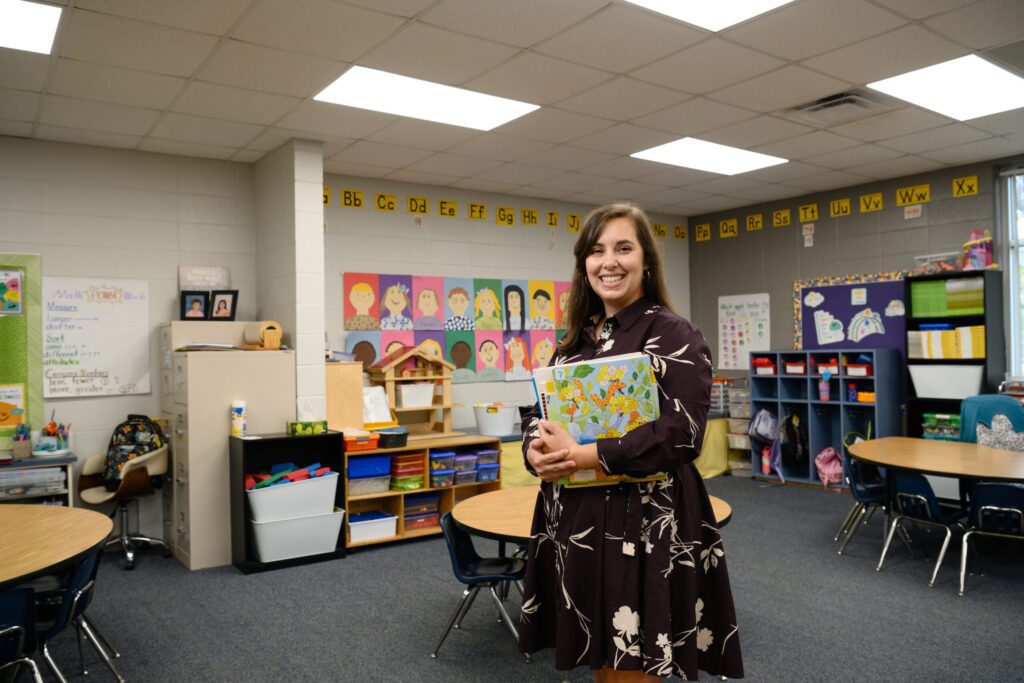Heather Dunham was a newly graduated teacher looking to make a difference. She stood at the front of a Metro Nashville, Tennessee-area classroom and met eyes with dozens of young faces who had arrived at school from many different places.
As an educator, she knew her multilingual learners needed to be able to understand the material she was covering.
As a passionate community-builder, she knew that having them understand each other would bring purpose, joy and energy to her day.
Every moment since, she’s pursued the building of better, brighter classrooms by making meaningful connections: Students with teachers. Big ideas with individual student outcomes. And coursework with broad comprehension.

As an assistant professor in Clemson University’s Department of Education and Human Development, Dunham now brings her joy, curiosity and passion to Clemson’s College of Education, preparing future educators to serve South Carolina’s classrooms where they will energize and educate the next generation of learners.
“I love activities that help everyone feel connected and comfortable communicating with each other and with me,” she says.
Research shows that Dunham’s approach promotes respect, improves collaboration and fosters empathy as future educators explore classroom challenges and discuss sensitive topics that may arise along the way.
“It’s amazing how much more engaged our students are when they feel part of a community,” she says.
Competitive spirit
Dunham knew that education was her career path as early as the fourth grade when an inspiring teacher sparked her competitive spirit with a writing exercise: write a story that incorporated as many of their weekly spelling words as possible into it.
“I was determined to outwrite my archnemesis,” Dunham says. “And in my memory, I succeeded. My story, titled ‘Jumanji,’ kept going and going, and I’ll never forget the groans of my classmates as I turned page after page when I read it out loud.”
While her peers might not have been a fan, she recalls with a laugh, her teacher was a constant cheerleader, encouraging her efforts and helping her feel like a successful student.
“She created such a wonderful classroom community full of fun and competition where I felt I thrived,” Dunham says.
So, when Career Day came around that same year, Dunham had found her calling.
“It’s my earliest memory of envisioning what I wanted to be when I grew up, and I just knew it was teaching,” Dunham says.

In high school, she briefly considered a career in social work because she wanted to help others.
“But I always circled back to the classroom,” she says. “By the time I entered college as an early childhood major, I was certain. Teaching has always felt like the perfect blend of my passions: empowering others, building connections and learning something new every day.”
“What I love about the College of Education and Clemson University is it’s a place where collaboration thrives, and the atmosphere feels both welcoming and intellectually stimulating. I’m also excited by the opportunities to do meaningful work in this part of the country, where there’s a real need for innovation in education.”
Heather Dunham, assistant professor, Department of Education and Human Development
Teaching teachers
Fast forward to her Clemson University classroom. Every college course that Dunham now leads is some version of that fourth grade year. The most engaging college classes, just like grade school classes, are the ones where relationships, creativity and hands-on learning help students get excited, she says.
That might look like having her education students design their own literacy games, inviting them to lead mini-lessons that lean heavily on creativity, or asking them to explore practical strategies that require tools you find at a toy store rather than a bookstore.
“When we talk about phonemes — the smallest units of sound — for example, I bring in tools like Unifix cubes, Play-Doh, letter tiles and sound boxes for students to use,” Dunham says of her Clemson classroom.
“They can physically move pieces to segment, isolate or blend sounds to form words, which makes the concept click in a way that lectures alone can’t,” she says. “Plus, these activities give my students practical strategies they can use in their future classrooms.”
South Carolina classrooms
Through rigorous coursework and relationship building, Dunham aims to give the next generation of educators a clear pathway to success.
She works to build more confident college learners, and along the way, she’s inspiring more engaged teaching in the classes they will one day lead.
Dunham recently designed a new Global Challenges course that examines contemporary social issues through children’s literature. She also worked with literacy faculty to develop new undergraduate English for Speakers of Other Languages coursework that allows future teachers to earn ESOL certification or endorsement.
“I love teaching because it’s like solving a living puzzle,” Dunham says.
“As a classroom teacher, I cherished the creative process of shaping learning into something both meaningful and achievable. But the real magic was in the relationships — learning how each student thought, celebrated or questioned the world,” she says. “Now, in a university setting, I bring that same passion to preparing future teachers, helping them piece together their own puzzles and discover the joy in building connections with their students.”

